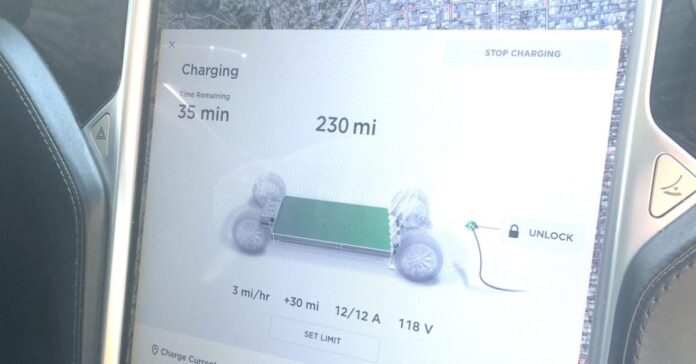A lawsuit alleging that Tesla is inflating mileage to avoid warranty claims is already being compared to Dieselgate and referred to as ‘Tesla Odometergate.’
Is Tesla having its own Dieselgate, or is it a nothing burger?
A new class action lawsuit filed in California against Tesla alleges that the automaker is using “predictive algorithms” to inflate mileage at the odometers, allowing Tesla to claim higher mileage past warranty limits.
Lawyers for the plaintiff wrote in the lawsuit:
Rather than relying on mechanical or electronic systems to measure distance, Plaintiff alleges on information and belief that Tesla Inc. employs an odometer system that utilizes predictive algorithms, energy consumption metrics, and driver behavior multipliers that manipulate and misrepresent the actual mileage travelled by Tesla Vehicles. In so doing, Defendants can, and do, accelerate the rate of depreciation of the value of Tesla Vehicles and also the expiration of Tesla Vehicle warranties to reduce or avoid responsibility for contractually required repairs as well as increase the purchase of its extended warranty policy.
The lawsuit refers to patents filed by Tesla regarding its mileage counter, but it primarily relies on the experience of its lead plaintiff.
Nyree Hinton, a data professional from Los Angeles, is the lead plaintiff in the lawsuit and shared his own experience that led to making these allegations.
In December 2022, Hinton purchased a used 2020 Tesla Model Y with 36,772 miles on the odometer. He received Tesla’s Basic Vehicle Limited Warranty, which covers repairs for four years or 50,000 miles, whichever comes first.
Shortly after, Hinton noticed that his vehicle’s mileage increased at an unexpected rate. Despite driving approximately 20 miles per day, based on his own estimate, the odometer indicated an average of over 72 miles per day. This rapid mileage accumulation led to the warranty expiring sooner than anticipated, resulting in Hinton incurring a $10,000 suspension repair bill that he believed should have been covered under the warranty otherwise.
Other than Hinton’s experience, the lawsuit is light on data, but it does cite other Tesla owners claiming to have similar experiences on forums and social media.
Here’s the full lawsuit:
Tesla’s own Dieselgate or a nothing burger
If the allegations in this lawsuit are factual, it would indeed be a significant scandal. However, it is light on proof.
Hinton appears to have closely tracked his own experience, and he has some credibility as a data analyst. We have no reason not to believe him, but the case would need a lot more evidence to move forward.
Electrek reached out to ‘Green’, a well-known Tesla hacker who frequently discovers new features and specifications in Tesla’s software and firmware.
He told us that he doubts Tesla would have been able to hide something like that from him and the broader whitehat hacking community, but he admits they weren’t looking for it.
Green believes that it is likely that Tesla uses predictive algorithms for its odometer, but it could be as simple as accounting for tire wear, since tire rotation is used to calculate odometer mileage.
Odometers are not perfect, and there can be some discrepancies, but the one described by the lead plaintiff in this case is undoubtedly higher than what would be expected or allowed.
Electrek’s Take
I think it’s too light on data and proof right now to make a big deal out of this. I have no reason not to believe Hinton, but it could also be a specific problem with his vehicle rather than a broader issue and active deception from Tesla.
If the lawsuit is allowed to proceed, we may gain more insight, and it could encourage others with similar experiences to join in – resulting in more data.
In the meantime, I’ll remain in the skeptical camp on this one.


